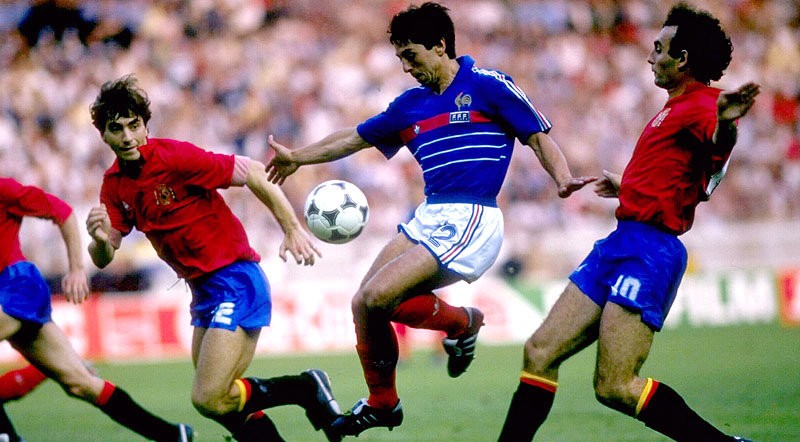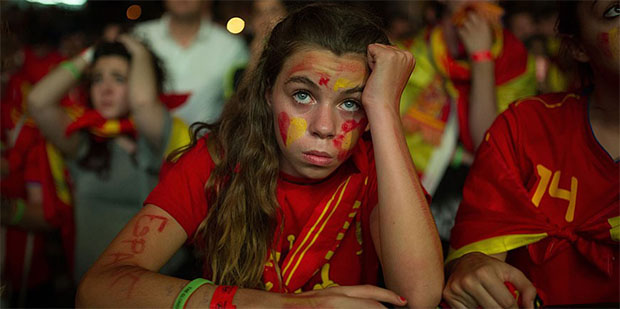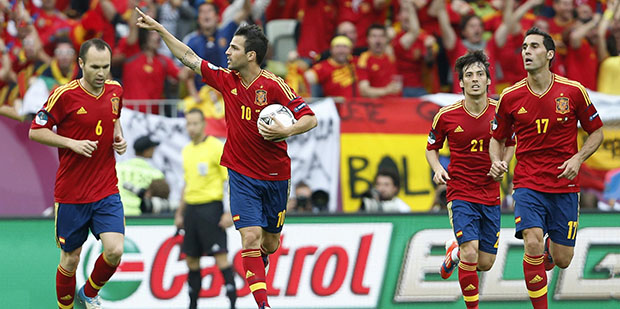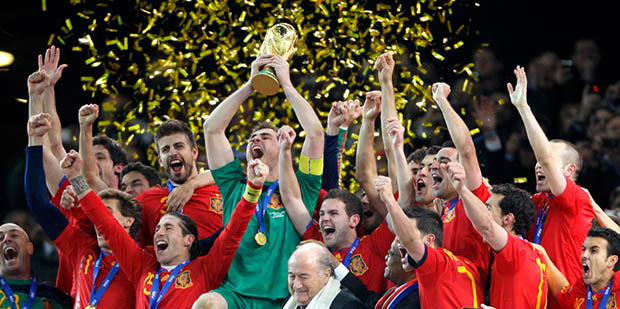- S.D. Eibar ready for maiden La Liga outing
- SD Eibar stengthen ahead of debut La Liga season
- Can ‘Super Mario’ live up to expectations in Madrid?
- MAN IN THE GROUND – Brentford 0 – 4 Osasuna
- Historic Basque derby welcomes S.D. Eibar to La Liga
- Munich to Madrid, via Brazil – Tony Kroos
- Rakitic in Spanish Switch
- Can Spain find redemption in Rio?
- Viva Espana! A season of redemption for Spanish football
- From the old to the new: who can fill the void in years to come for La Roja?
EURO 1984: Spain fall just short against classy French
- Updated: 4 June, 2012

 GETTY
GETTY
After the well publicised disaster of the 1980 European Championships in Italy, it is fair to say that UEFA entered the 1984 tournament with a degree of trepidation.
The disappointing crowds and an unambiguous hooligan element that blighted the competition four years earlier, meant France were under some pressure to put on a good tournament. If they didn’t, rumours suggested that it could have meant the end of the competition all together.
Despite keeping with the eight team format that they had previously deployed for the first time in Italy, the tournament was perhaps notably for its omissions. England, defending World champions Italy, Holland and USSR all failed to make it to France after poor qualifying campaigns.
The hosts France may have been clear favourites to lift the trophy, but the feeling was that European Championships was anybody’s to win.
Entering the tournament with arguably one of their strongest sides to date, there was a certain degree of optimism that Spain could prove realistic contenders in France and with players such as Santillana, Gordillo and Francisco Carrasco in their squad, confidence was high.
Drawn in Group B with tournament second favourites West Germany, Iberian rivals Portugal and the relative unknowns of Romania, many predicted that Spain should secure at least second place in the group.
However after 1-1 draws against both Romania and Portugal, Spain travelled to the Parc des Princes knowing anything less than victory against West Germany would almost certainly see them on the next plane home.
Equally, after misfiring in their opening match against Portugal and then narrowly scrapping past Romania, West Germany knew that they only needed a point to guarantee progression to the semi finals.
And after Toni Schumacher saved a penalty from Francisco Carrasco early on, it looked as if Spain’s tournament was coming to a premature end. However deep into injury time, the Spanish launched one more frenzied attack and Antonio Maceda was on hand to head home Juan Senor’s cross to ensure that La Roja qualified in the most dramatic of circumstances.
In the semi finals Spain faced Denmark at the Stade Garland in Lyon. After edging out England in the qualification stages to reach the competition, the Danes had gone on to be the surprise packages of the tournament.
It was a surprise that looked set to continue when Soren Lerby gave his side the early lead. However when Maceda levelled for Spain, the game went the full distance to penalties.
After all of the first eight penalties were scored, Preben Elkjaer blasted the ball over the crossbar leaving Carlos Santillana to convert the final penalty and put Spain in the final against a France side built around Michel Platini.
The much anticpiated final failed to live up to expectations, as is so often the case in major tournaments, with both sides providing few chances.
The breakthrough finally came in the 56th minute however, following a horrendous blunder by Spanish goalkeeper Luis Arconda. Despite being an outstanding goalkeeper for both club and country for over a decade, the Real Sociedad stopped inexplicably fumbled Platinis’ free kick over the line to give France the advantage.
Despite being reduced to 10 men following the dismissal of Yvon Le Roux, France controlled the game and finally made sure of the victory when Bruno Bellone chipped the ball over the advancing Arconda minutes from time. France proved deserved winners, and Platini capped a fantastic tournament which also saw the Juventus star finish as top scorer with an impressive nine goals.
As for Spain, despite losing at the final hurdle and bizarrely not having any players in the tournament’s ‘Best XI’ there were certainly enough signs to suggest that there was more to come as they prepared for the qualification phase of the 1986 World Cup.
Follow @icentrocampista






You must be logged in to post a comment Login